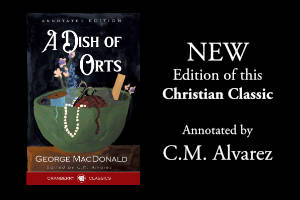Religion is our search to answer the big questions: who are we, how did we get here, where are we going, and what is our purpose here. Each religion has it’s own set of answer to those questions: some are similar to each other and others very different.
I’ve noticed that often, if someone hasn’t learned the nuts and bolts of their faith, that Christians will absorb beliefs that are not rooted in Christianity, but rather other belief systems. You will hear Christians use language of New Age, Hindu, and Gnostic belief systems, not even realizing how directly opposed they are to the Christian faith. It is helpful, and very important, to not only know what you believe and why you believe it (this is the focus of apologetics), but also what other religions believe, how the differ, and how they are similar to Christianity.
As I studied the various religions, there was one similarity among them that was very interesting to me. That is among the oldest and original of the religions, they share a belief in a Supreme Creator God. In the accounts of other cultures, this Creator God “went away” and was not concerned with his creation, leaving them in the hands of lesser gods, usually referred to as his children. This is actually the same as the Biblical account, except for the fact that the Creator God did not “go away,” but chose Abraham and his descendants to be His own special people.
The rituals for the sacrifices and concern with purity are also interesting. In these ancient religions, there is always an understanding that wrong must be atoned for with blood. Blood speaks.
The other thing that you will notice is that Christianity is unique among the religions in that other religions have a list of things one must do for God, while Christianity’s message is about what God has done for us. As I mentioned in my post on beginning apologetics, William Lane Craig’s book, On Guard addresses this exclusivity.
The books below are those that I read for a class on world religions in my graduate program. There are a couple of things that I want to note. The first is on Religions of the World which is a textbook covering the major world religions. The most recent versions have portions of the book online that you have to pay for additionally. So my advice would be to get an older version.
Also, if you read something in the book that makes you think, “Hmmm, can that be right?” . . . it probably isn’t. It has a very specific slant and if you read the Amazon reviews, you will see that many people question some of the claims. (Just as an example, some of the claims the book makes about Judaism and Zoroastrianism are just absurd, they are not true at all.) The book is a starting point, not a definitive authority.
(Note: I looked up this book before posting and it appears they may have made some changes. When I originally ordered the book, some of the complaints on the older editions were from professors and students stating the price was too high, over $100 at the time, and about the chapters behind an additional paywall. The price for the book is now significantly lower and there is an additional author listed, maybe they made changes to the content as well)
Jesus Beyond Christianity is a selection of short essays from people in other religions commenting on Jesus. We had weekly assignments in which we had to write an essay responding to those claims. It’s good practice, especially if you want to prepare yourself for conversations that may come up with nonbelievers or followers of other religions.
Finally, when reading the texts of other religions, recognize that it is spiritual warfare. You are essentially entering into the stronghold of an opposing spirit by engaging the thought. Be sure to spend time in prayer, plead the blood of Jesus, and invite in the presence of the Holy Spirit to be your teacher and guide as you read. When I went through the class, I could feel the spiritual oppression while reading those texts. Especially during the unit on Islam and reading the Qu’ran, the entire tone of the discussions in the class changed.
As for my most recommended text, this was not assigned in the class but Against Heresies by Irenaeus was my #1 go-to resource. I think I cited it in every single response and essay I wrote for this class. If you want one resource to answer false beliefs, apart from the Bible, this is the one. Irenaeus wrote this in the second century, but there is truly nothing new when it comes to heresies, they are just recycled and given a new name.
| Assigned Texts | 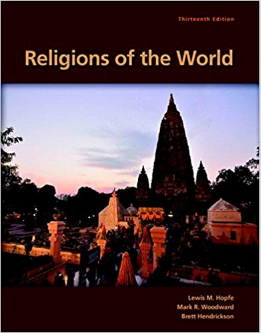
Religions of the World: On Amazon |
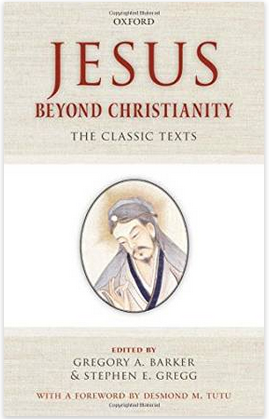
Jesus Beyond Christianity: On Amazon |
| Supplementary Texts | 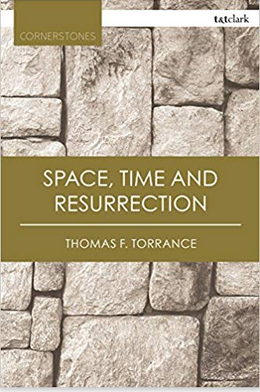
Space, Time, & Resurrection: On Amazon |

Knowing Christ in the Challenge of Heresy: On Amazon |
| My Most Recommended | 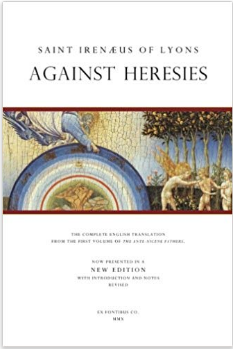
Against Heresies: On Amazon |
|
| Islamic Texts | 
Qur’an: On Amazon |

Hadiths: On Amazon |
| Hindu Texts | 
Bhagavad Gita: On Amazon |

The Upanishds: On Amazon |

Laws of Manu: On Amazon |
Buddhists Texts | 
Diamond Sutra: On Amazon |
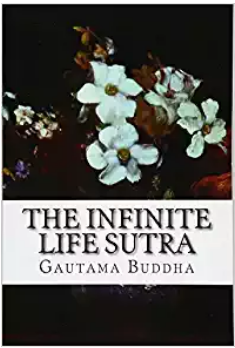
Larger Sukhavativyuha Sutra: On Amazon |

Smaller Sukhavativyuha Sutra: On Amazon |
|
|
Confucianism |
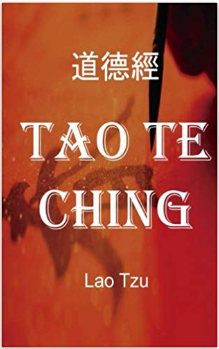
Tao Te Ching on Amazon |




